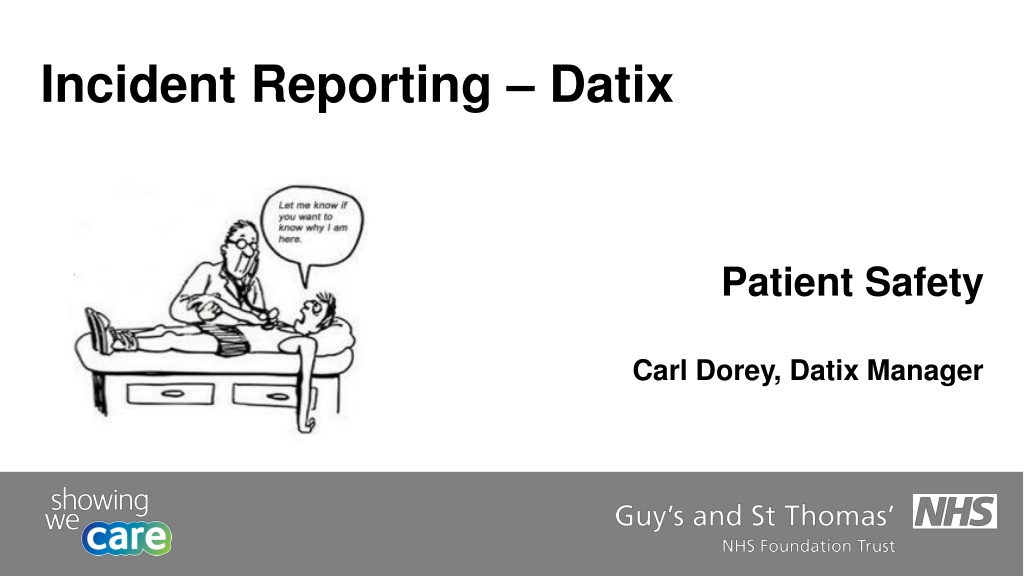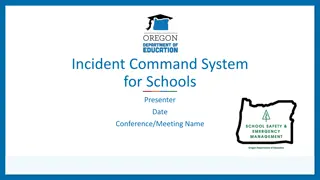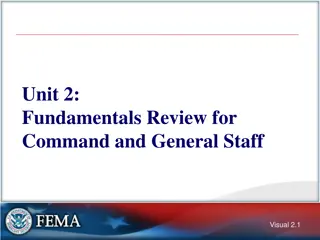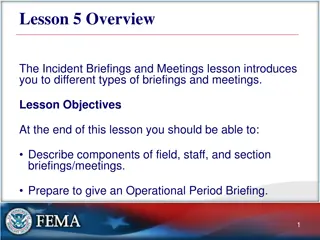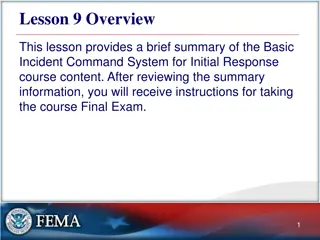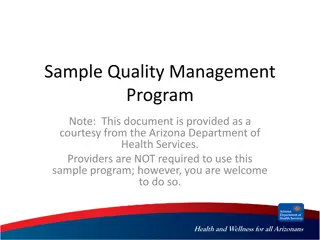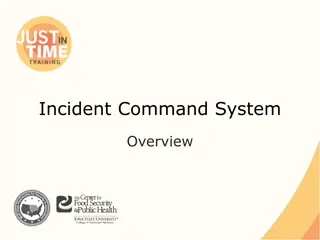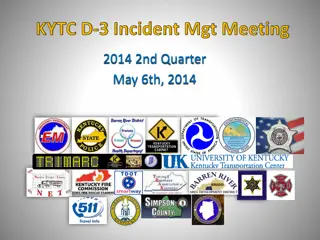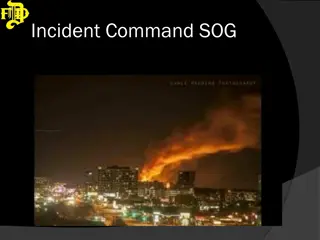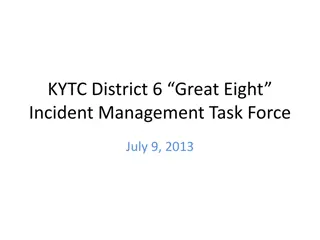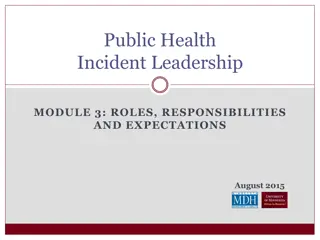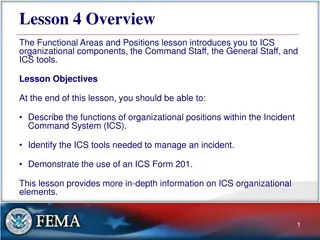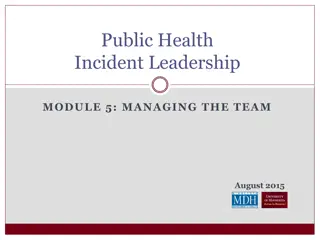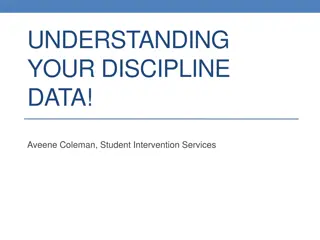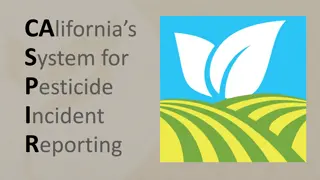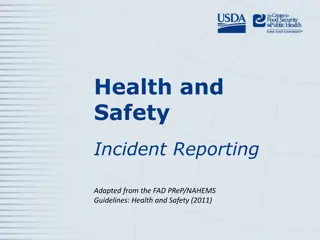Understanding Incident Reporting in Healthcare
Incident reporting in healthcare is crucial for patient safety and organizational improvement. An incident can encompass a wide range of events that cause or have the potential to cause harm, loss, or damage. Reporting incidents, including near misses, allows for learning from both mistakes and successes, leading to better practices and preventing future recurrences. Emphasizing a culture of openness and honesty, incident reporting is not about blame but about identifying areas for enhancement to ensure the well-being of patients and staff. Utilizing systems like Datix helps in managing and investigating incidents effectively, ultimately enhancing patient safety across healthcare organizations.
Download Presentation

Please find below an Image/Link to download the presentation.
The content on the website is provided AS IS for your information and personal use only. It may not be sold, licensed, or shared on other websites without obtaining consent from the author. Download presentation by click this link. If you encounter any issues during the download, it is possible that the publisher has removed the file from their server.
E N D
Presentation Transcript
Incident Reporting Datix Patient Safety Carl Dorey, Datix Manager
What is an incident? An incident can be defined as: any event or circumstances involving patients, visitors or staff that could have, or did lead to any unintended or unexpected harm, loss or damage. This harm can be identified as physical or psychological.. Ultimately any untoward or unexpected event which interferes with the orderly progress of day to day activity, that either results in, or could have resulted in: Harm to a patient, member of staff or visitor. Damage or loss to property including buildings, equipment, vehicles and materials. Disruption of any healthcare services, which affects the day to day running of the organisation, and/or inappropriate or inadequate clinical care of patients.
But Its Not all About Harm! It is important to report any incidents or events not just those that cause harm as the best form of incidents to report are those that were avoided. Even if a complication was recognised and dealt with appropriately, capturing this information can provide great learning from good practice. What is a Near Miss? Any event, circumstance or situation that could have resulted in an incident, but did not, due to either chance or successful intervention.
Why report an incident? Good practice: Learning from things that go wrong and also from things that go right! It gives us the opportunity to Improve and/or change practice Prevent recurrences keeping you and the patients safe Provides escalation for you on challenges that are being faced in your area Being Open and Honest with our patients Duty of Candour. No blame, just culture reporting an incident is not admission of any fault or liability! Statutory legal requirements: Health & Safety at Work Regulations (Reg 5). RIDDOR Reporting of injuries Diseases and Dangerous Occurrences Regulations Care Quality Commission (CQC) Duty of Candour (all Moderate, Severe & Death harm) National Reporting & Learning System (NRLS) through NHS England & NHS Improvement.
Incident Reporting and Datix We manage and report all our incidents through the use of the Datix Risk Management System. This records any event that concerns our patients, staff or organisational functions. The purpose of Datix is: To investigate and manage the progress of any reported incident in a timely manner. To provide insight into what happened and why it occurred. To give an opportunity to review, learn and improve our procedures to ensure patient safety across the Trust. This can be found on the GTi Homepage
What we need to know when you report 1. Who? Person Affected Was it the Patient? Staff? Public? Contractor? Or was it environmental? What? Type of incident select by incident category and sub-category Description we need a succinct, factual description of what happened Any immediate actions to resolve the incident? Incident severity was there any harm to those involved, or was this a near miss / no harm? Where? Location where did the incident occur? When? Date and Time when did it happen? 2. 3. 4.
It doesnt have to be War & Peace Having an understanding of the SBAR approach will help you when reporting
Incident Management Process Understanding the How and Why ? We have trained incident managers and investigators for each area of the trust. Trust policy suggests 30 days to review and approve an incident. Incident Handlers MUST ensure they provide feedback to the incident reporter either verbally or using the Datix feedback message system. Feedback to the Incident Reporter is important for Closing the Safety Loop Our central Quality Improvement and Patient Safety (QIPS) Team read every incident to assess its notability i.e. should it be looked at further, any support needed or a follow up with the Directorate for further action. We also encourage sharing of the Lessons Learned within the immediate team and across all specialities.
Key Takeaways An incident = any unexpected or untoward event that did or could lead to harm to you, patients or the organisation Anyone can and should report all incidents via the intranet (GTi) Easy and simple It is the most important step in managing risk for staff and patients Any queries speak to your supervisor or contact the team: Datixadmin@gstt.nhs.uk
Anyone can report - without a login Scroll to bottom of GTi homepage http://gti.gstt.local/home.aspx
